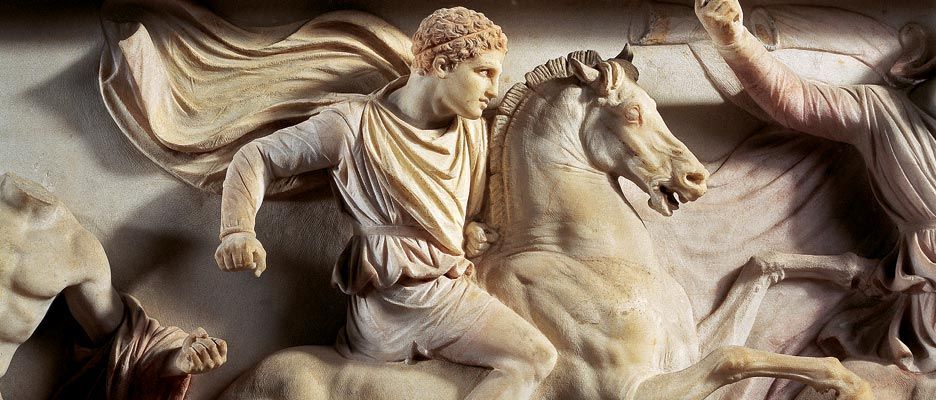Alexander the Great and the Name Game: Exploring the Identity Politics of Greece and Northern Macedonia
Alexander the Great, Macedonia, and the Name Dispute: Exploring the Controversial Legacy that Divides Greece and Northern Macedonia

One of history's most notable military generals, Alexander the Great, is regarded as among the most important figures in history. He was born in Macedonia in 356 BCE, and during his reign, he conquered Greece, Egypt, and Persia. Even though he died suddenly, his influence may still be seen today, especially in the ongoing identity politics between Greece and Northern Macedonia.
Northern Macedonia is a landlocked nation in the Balkans with a diversified population that includes, among others, Albanians, Turks, Roma, Slavs and Greeks. Alexander the Great was also born in a nation called Macedonia, and the nation has long regarded him as a representation of its identity. According to some experts, "the modern state of Macedonia is rooted in a romantic nationalism that has constructed the Macedonian nation and identity around the legacy of Alexander the Great"
The distinction between historical Macedonia and contemporary Northern Macedonia must be made. While current Northern Macedonia is an independent nation that formed from the dissolution of Yugoslavia, ancient Macedonia was a monarchy situated in the northern area of Greece. The inhabitants of Northern Macedonia may assert a relationship to ancient Macedonian heritage, although the two groups are independent and distinct. Because Greece considers that the usage of the term "Macedonia" implies territorial claims over the northern Greek area of the same name, this distinction has been a source of disagreement between Greece and Northern Macedonia.

Both Macedonia and Greece were significantly impacted by Alexander's conquests. He appointed Antipater, one of his generals, to rule the area after capturing Greece. With the exception of Sparta, which he revered for its military prowess, Antipater was successful in establishing Macedonian dominance over Greece. The areas Alexander conquered were also influenced by Hellenistic culture, which included aspects of Greek language, art, and religion.
The name of Macedonia is at the heart of the identity politics between Greece and Northern Macedonia. Greece has long objected to its neighbour's usage of the word "Macedonia," arguing that it suggests a claim to the same-named area in northern Greece. The Prespa Agreement, a compromise achieved by the two nations in 2018, was the result of negotiations that lasted over three decades. In exchange for Greece withdrawing its opposition to the nation's membership into NATO and the European Union, Northern Macedonia agreed to change its name to the Republic of North Macedonia.
For Greece, the disagreement has important political and cultural ramifications. Since "Macedonia" is the name of a territory in northern Greece that was once the capital of the ancient Macedonian empire, controlled by Alexander the Great's father, Philip II, many Greeks associate the word "Macedonia" with their own national identity. The argument that Northern Macedonia's use of the term "Macedonia" constitutes an attempt to appropriate Greek identity and culture has also become a hot topic in Greek politics, according to some politicians and activists.
The efforts to settle the name dispute between Greece and Northern Macedonia have received significant support from the international community. The name dispute between Greece and Northern Macedonia was finally resolved by the Prespa Agreement, which was signed by their respective prime ministers in June 2018. Greece agreed to drop its objections to the country's application for membership in the EU and NATO, and Northern Macedonia was required to change its name to North Macedonia. Both praise and criticism were levelled at the accord, with some saying it was an essential step towards regional stability and others accusing it of caving in to nationalist forces.
In conclusion, historical, political, and cultural variables have influenced the identity politics between Greece and Northern Macedonia. Both nations continue to take pride in and fight over the heritage of Alexander the Great and his relationship to Macedonia. The name controversy, which raged for more than 20 years, brought to light the region's complicated identity politics and the difficulties in balancing divergent viewpoints and objectives. The Prespa Agreement was an important step in the dispute's resolution, but it also brought attention to the difficulties in establishing a stable and inclusive regional order.




